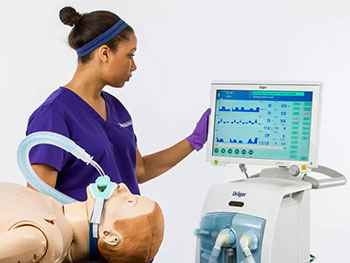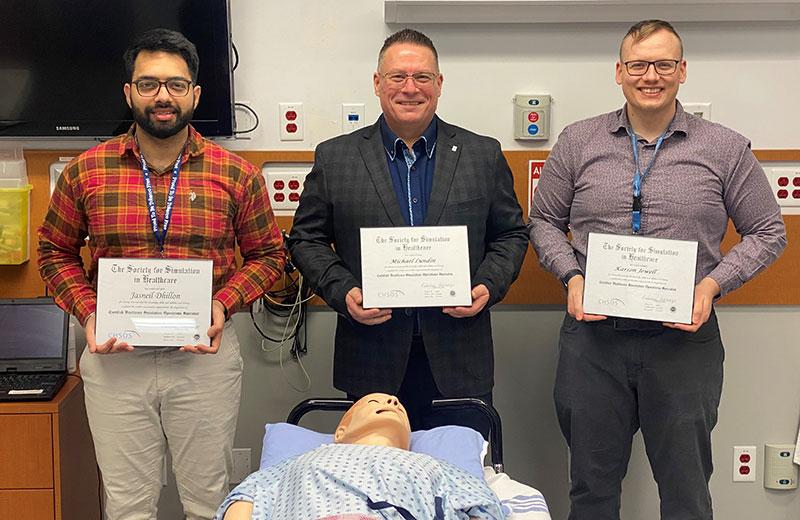The Northern Clinical Simulation team is celebrating their certification as Healthcare Simulation Operations Specialists. The team is led by Michael Lundin, who is the Regional Manager, Clinical Simulation Education, and Chair, BC Simulation Network.
The Northern Clinical Simulation program uses life-sized, anatomically correct mannequins, known as “simulators,” to provide realistic training for health care professionals. The simulators, which can breathe, speak, and bleed, provide practise in dealing with births, hemorrhages, broken limbs and heart attacks. This lets health care professionals get hands-on experience practising as a team while developing new skills without risk to patients.
The certification was developed as a service to the health care simulation community and is intended for people who perform health care simulation in the operations specialist role in all:
- Simulation modalities (the type of simulation experience)
- Settings (locations where simulation takes place)
- Geographic locations
- Learner populations

- Functions (e.g., IT, A/V)
- Professions
Operations Specialists, as defined by the Society for Simulation in Healthcare’s dictionary, are people whose primary role is “the implementation and delivery of a simulation activity through the application of simulation technologies, such as computers, audiovisual, or networking technologies.”
The Society also notes that Operations Specialist is “an inclusive ‘umbrella’ term that embodies many roles within health care simulation operations, including simulation technician, simulation technology specialist, simulation specialist, simulation coordinator, and simulation AV specialist. While many of these individuals also design simulation activities, this term refers to the functional role related to the implementation of the simulation activities.”
“I am very proud of our team accomplishment, as it directly supports high-quality simulation-based education in the North,” says Michael Lundin.
To get the credential, each Northern Clinical Simulation team member needed to:
- Take part in health care simulation in an operations specialist role
- Show focused simulation expertise with learners (undergraduates, graduates, members of the allied health professions, or health care practitioners).
- Have a bachelor’s degree, or equivalent combination of education and experience.
- Document two years of experience in a health care simulation operations role
Learn more about the Northern Clinical Simulation Program.














Comments